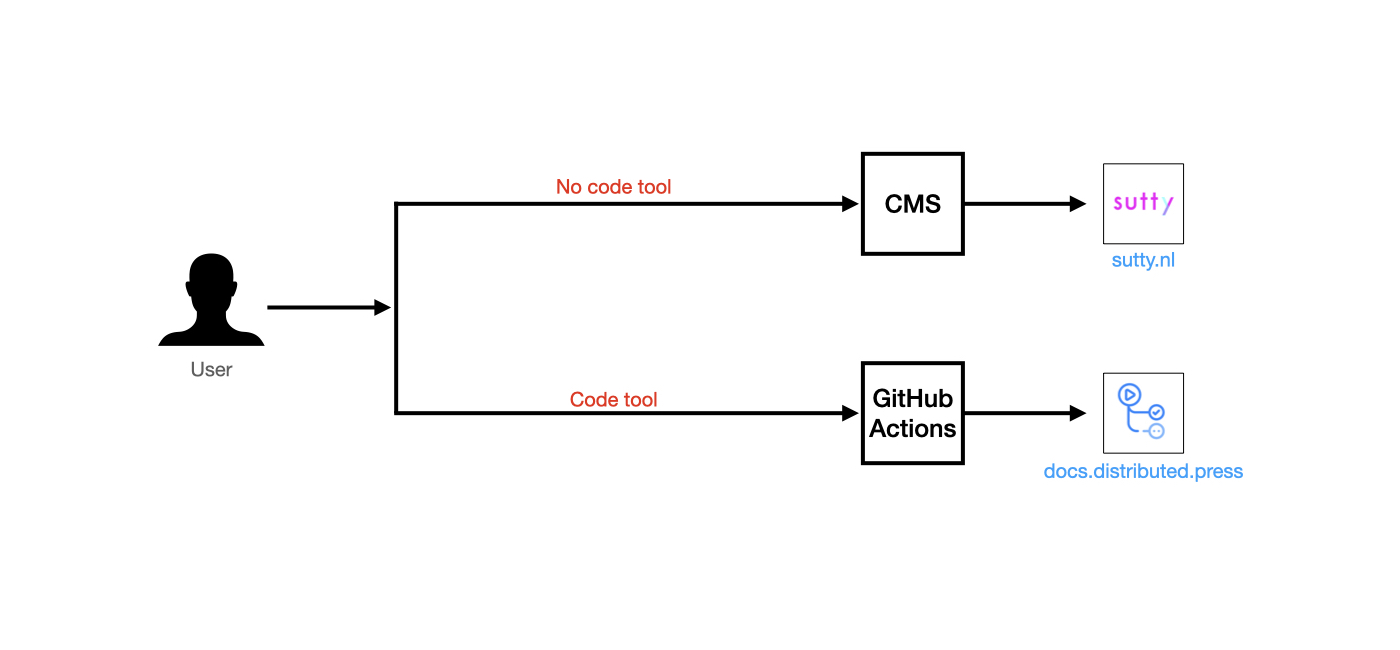Approach
Distributed.Press is an open-source publishing tool for the distributed web.
Our approach involves engaging communities, learning from adjacent media projects, and experimenting with novel technologies and standards. This will help us address a wide range of issues in publishing by establishing a thriving community sustained through good governance and an equitable revenue model. Our project team of creators and technologists collaborate in a tight feedback loop, continuously integrating new learnings to ensure positive outcomes for the community. Whether you are a writer, artist, or developer using our tool, we hope Distributed.Press works for you.
Phase 1: Learning about the ecosystem
Earlier in 2020, we spoke to individuals working across the web publishing landscape–founders of progressive platforms like Popula (opens in a new tab), the community-oriented visual organization tool Are.na (opens in a new tab), activists and journalists who combat misinformation and censorship, as well as proponents and builders of open protocols from the IndieWeb and DWeb movement.
The discussions covered a range of themes related to publishing: challenges with authoring tools and distribution networks, personal experiences of censorship, experiments with collective governance, growing concerns around misinformation, emerging publishing technologies and technical implementations, and the tensions between finding an audience and preserving anonymity. We heard that many dominant publishing platforms continue to undervalue quality, atomize creators, and increase labor precarity. Some notes from these interviews can be found on GitHub (opens in a new tab).
We learned about a number of adjacent initiatives that we were unaware of until these interviews, prompting us to explore new territories. Here, we found new collaborators for the next phase of our project.
We would like to recognize badpennie, SoapDog, Emmi Bevensee, Dawn Walker, Maria Bustillos, Jack Jamieson, and others who wish to stay anonymous, for their invaluable input at this phase of the Distributed Press project, as well as Ace Volkov for his contribution of illustrations on our project website. Since these interviews, our project team has discussed our learnings extensively, synthesizing the information internally and with our collaborators, to propose the next phase of our project.
Phase 2: Building an author-owned magazine on the DWeb
We created COMPOST (opens in a new tab), a magazine about the digital commons that provides fertile ground for creative experimentation, cultivates communities that value participation, and celebrates the labor of regeneration and care.
In recognition that quality content is often the work of diverse teams of authors, editors, artists, and photographers, we feel that the tool we build must enable reliable livelihoods and democratic participation for all. These ambitions are in common with our vision of a sustainable open Web and the labor behind the free software that enables it.
Distributed.Press publishes content to the World Wide Web and Distributed Web, and we prototype our publishing tools and practices through COMPOST.
Phase 3: Building tools for self-hosted and no-code publishing on the DWeb

From fall 2022 to the spring of 2025, Hypha Worker Co-operative collaborated with Sutty, another worker owned co-op, based in Buenos Aires, Argentina, to build out our features for DWeb-native, no-code publishing. This phase of the project was made possible through the generous support of the Filecoin Foundation for the Decentralized Web (FFDW) (opens in a new tab).
In this development cycle, we built off of Sutty's content management system (CMS), a platform for managing and hosting resilient websites designed for activists, collectives, and organizations, to enable anyone to publish creative and journalistic works to both the World Wide Web (WWW) and DWeb. As of 2025, Distributed Press publishes to the InterPlanetary File System (IPFS) and Hypercore/Holepunch.to. This post about us on the FFDW blog (opens in a new tab) sums up our goals for the first few milestones.
In late 2023, Distributed Press expanded its scope from publishing to microblogging and social media, through features that use ActivityPub: the Social Inbox and Social Reader.
Get in touch
Core feature development on Distributed Press is on hold, but the team (and code base) remain active and open to collaborations.
If you are interested in having a conversation about possible ways we could work together please get in touch!